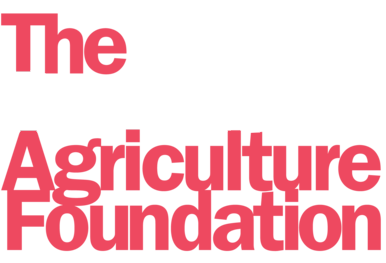Do Mental Health, Mental Illness and Mental Wellness Mean the Same thing?
May 3, 2021
By Lesley Kelly, Farmer and Co-Founder of the Do More Agriculture Foundation
The difference between mental health and mental illness can be confusing. Everyone has mental health, just like everyone has health. As the World Health Organization famously says, “There is no health without mental health.” In the course of a lifetime, not all people will experience a mental illness, but everyone will struggle or have a challenge with their mental health just like we all have challenges with our physical well-being from time to time. Our mental health is on a continuum (or spectrum) and changes and moves along it throughout the seasons of life.
When talking about mental health, we use some terms synonymously but they do mean different things.
Mental health: The World Health Organization states “Mental health is a state of well-being in which an individual realizes his or her own abilities, can cope with the normal stresses of life, can work productively and is able to make a contribution to his or her community.” Essentially, mental health is part of each one of us. It’s our emotions, our thoughts and feelings, our ability to solve problems and overcome difficulties, our social connections, and our understanding of the world around us.
Mental wellness: Being mentally well means that your mind is in order and functioning in your best interest. You are able to think, feel and act in ways that create a positive impact on your physical and social well-being. It’s essentially a place on that spectrum/continuum where we have good mental health.
Mental illness: The term mental illness refers collectively to all diagnosable health conditions characterized by alterations in thinking, mood, or behaviour associated with distress or impaired functioning. On that spectrum, if experiencing poor mental health for a period of time can possibly lead to mental illness. There are many different mental illnesses, and they have different symptoms that impact peoples’ lives in different ways.
So using agriculture in comparison, a combine harvesting a crop is our mental health. The combine that is getting the crop off without any major breakdowns and malfunctions and working in sync and productively with the other equipment is mental wellness. Mental health challenges and illnesses are when the combine starts to have an issue in its software and electrical system that prevents the combine to operate. It won’t start, there are engine issues, and the main functions of the combine will not work.
Here is where stigma comes in.
We often think that if someone has a mental illness, they have poor mental health. As an example, I can have a broken leg but be physically healthy. Just as it’s possible to have poor mental health but no mental illness, it’s entirely possible to have good mental health even with a diagnosis of a mental illness. Using our combine example, the combine is mentally well. It’s working productively, but from time to time, the lights don’t come on making it challenging to work at night. There is an issue with the electric system (ie - mental illness) but with some on-going maintenance, the combine runs at peak performance (ie - mental wellness).
What Does It Mean to Be Mentally Healthy?
Don’t take your mental health for granted. Just like our physical health, we need to take action to stay healthy. Fortunately, many things that are good for our physical health are also good for our mental health.
Get More Sleep - Sleep and mental illness are linked. Studies have shown that sleep problems increase the risk of mental illness. Sleep deprivation can affect your ability to concentrate, learn and be resilient. Most adults need around eight hours of sleep each night to function and stay mentally healthy.
Make Time for Yourself - Being a farmer, we are taking care of crops, animals, our family and farm. But it’s important to do an activity you enjoy. Not only will your mental health benefit but your family and colleagues may enjoy your refreshed state.
Be Active - Exercise keeps us physically healthy and also gives you a mental boost. When we exercise, our brain releases endorphins and serotonin which help improve our mood. Regular exercise can also reduce stress, anxiety and depression.
Manage Stress - Farming can bring many highs, lows and stressful moments. Stress is part of farming, life and doesn’t cause you harm if you keep it under control. If you struggle to wind down or manage your thoughts, find relaxation techniques that work for you. Some people use yoga, exercising or journal writing to relax and de-stress.
Meet With Friends - Living in rural areas and farming by yourself or with only a few other people, can feel isolating and be lonely. Social isolation and poor relationships are risk factors for mental illness. You don’t need a big network of friends but being part of a group of people with common interests or volunteering with a community group will give a sense of belonging.
Ask for Help - Asking for help can be hard. There’s no shame in going through hard times in a very challenging and stressful farming career. Don’t wait for things to get any worse or for your stress to build before speaking out. Talk to a trusted friend and consult your doctor or a mental health professional.
With knowledge, we can slash that stigma, and become aware of where we are on that mental health spectrum. Then with the right supports and tools, help us on that spectrum to mental wellness.
If you are looking for more information on resources and support, visit our list of resources.
The Do More Agriculture Foundation is not intended to be a substitute for professional medical advice, diagnosis, or treatment. If you are in crisis, please visit your local emergency department or call 911 immediately.
